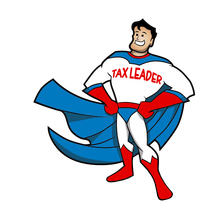TAX RELIEF PROGRAMS
Wage GarnishmentIn attempt to collect debts owed to them the IRS will garnish or levy your wages. This will happen after the IRS has sent you three notices followed by an Intent to Levy and multiple demands for payment in full. Payment in full includes all penalties and interest that accrued on your debt since your account was delinquent. If the IRS feels that you are ignoring your tax liabilities they will take collection action and enforce a wage levy. To determine the amount of your wage levy, or garnishment, the IRS uses what is called the National Standard, which applies to food, clothing, transportation and healthcare expenses. The National Standard applies to all taxpayers regardless of local cost of living or any other fluctuating expense factors. The National Standard only varies depending on your family size and it is used to determine how much you absolutely need to live and take care of your dependents. This is a very generic estimate that will not take into account many factors that vary greatly from household to household. Regarding a wage levy, the IRS states on their website (www.irs.gov) that, “Taxpayers and their dependents are allowed the standard amount on a per person basis, without questioning the amount actually spent.” If the IRS has already begun to garnish your wages it means that they have contacted your employer’s Human Resources department and issued a legal wage levy. They provide your employer with the calculated amount they believe you need to live and require the HR Department to withhold the rest to put toward your tax debt balance. While your wages are being garnished your tax debt is still accruing Interest and Penalties that the IRS will expect you to pay unless you are able to negotiate other terms of agreement to settle your debt.
|
Audit DefenseIRS tax audits panic millions of taxpayers every year. Enforcement and collection efforts have gone up by more than 11% in the past two years. An IRS tax audit is a review of an individual or company’s accounts and financial information compared to what they claimed on their tax return. The process is meant to ensure that all taxpayers are filing correctly and accurately each year. There is a chance that any taxpayer will be audited by the IRS. In fact, the IRS says that random selection based on a statistical formula is one of the ways they decide which taxpayers to audit. The IRS will audit you if there are discrepancies or mismatched information on any of your tax document and you have failed to correct them through the AUR department. Also, you may be audited if you had any transactions or business relations with another taxpayer who is being audited. Returns that seem to be incomplete, inaccurate or questionable are first sent to a department of the IRS called Automated Underreporting, the AUR department. AUR will send you a notice letter that may be confused as an audit notice and vice versa. The notice sent when you are being audited says that your return has been “opened for examination.”
|
Tax Resolution OptionsOnce you are in compliance with the tax code, meaning you have filed all your returns and are paying tax withholding and/or quarterly estimated tax payments, then we can talk about how to handle any remaining tax liability. Let’s talk about your IRS debt options to get your taxes back on track. Do not ignore your tax debt. There are many IRS debt options and this is the worst! If you ignore your tax debt, the IRS will take drastic actions in an attempt to collect: Liens will be filed Any titled assets (real estate, automobiles, etc.) that the IRS can find in your name will have liens placed on them. Through tax liens, the IRS will become your most-secured creditor. Accounts will be levied The IRS will locate and take money right from your bank accounts. Any account you have access to is at risk – even if you are not the primary on the account! Your income will be garnished If you are employed, your employer will be instructed to garnish your wages. If you are retired, your pension and/or retirement will be intercepted. Even social security income is at risk.
|















